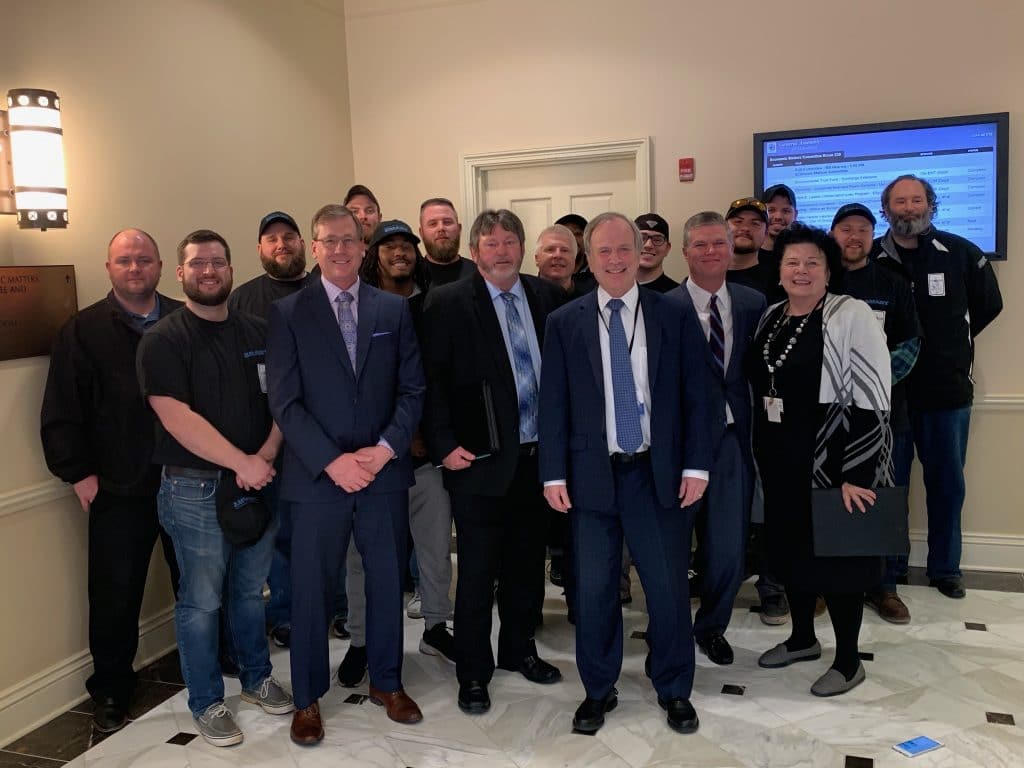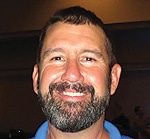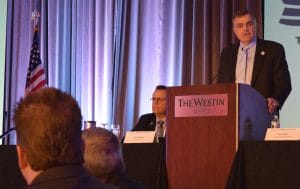Two-person crew legislation endorsed by our union progressed ahead in two state legislatures late last week.
In Illinois, S.B. 24 was passed by the state Senate by a party-line 36-19 vote on Thursday. The state House of Representatives’ Rules Committee has received the bill, which establishes a minimum crew size of two individuals, and will consider it. The bill’s primary sponsor in the Illinois House is state Rep. Jay Hoffman (D – Dist. 113).
“Thanks to everyone who contacted their state senator, this couldn’t have been done without you,” The Illinois State Legislative Board said in a post on its Facebook page. “The General Assembly will now go on a two-week holiday break so please be ready to reach out to your State Representatives in their district offices.”
If you are a resident of Illinois, follow this link to find your state legislators and help to keep up the momentum for S.B. 24.
As previously reported here, the Nevada State Assembly’s Committee on Growth and Infrastructure passed A.B. 337, 8-4. The bill now moves to the full Assembly for consideration.
If you are a Nevada resident, you can find your state legislators by following this link.
A two-person crew bill also has been passed in Maryland and awaits the action of Gov. Larry Hogan.
Nationally, the Safe Freight Act two-person crew bill introduced in the U.S. House (H.R. 1748) by U.S. Rep. Don Young of Alaska continues to gain sponsors through the vocal support of SMART Transportation Division members and retirees alike, the national legislative office in Washington reports.
National Legislative Director John Risch said that more than 1,500 messages from members and retirees have been sent to members of the House in support of the Safe Freight Act and the bill has been gaining co-sponsors.
“Hearing from their voters goes a long way to opening the door to our message in the halls of Congress,” Risch said. “This is a team effort, so keep up the emails and phone calls.”
To send an email in support of the national Safe Freight Act, follow this link.
Tag: two-person crews
Nevada State Legislative Director Jason Doering and his BLET counterpart Matthew Parker explain why two-person crews are necessary in an op-ed on the website of The Nevada Independent.
In the article, Doering and Parker refute some of the carriers’ most common arguments as to why two-person crews should not be legislated. They specifically mention a letter in support from Larry Mann, who helped to draft the Federal Railroad Safety Act of 1970 and is SMART TD’s rail safety coordinator to the designated legal counsel.
“‘The FRSA has been in existence since 1970, and no court has ever ruled that collective bargaining agreements or any rights under the Railway Labor Act preempted a safety law,’ Mann wrote. … Mann pointed out that Wisconsin enacted two-person crew legislation in 1997 and had the law challenged by four rail carriers. The law was upheld in 1999 by the 7th Circuit Court of Appeals.”
The Assembly Growth and Infrastructure committee recently voted on April 11 to send Assembly Bill 337, the state’s two-person crew bill, to the Assembly floor and recommended that it be passed as amended.
Click here to read the rest of the article from The Nevada Independent.
Yesterday (April 10), H.B. 186 was referred to the House Transportation and Public Safety Committee. State Rep. Michael Sheehy, who introduced the bill, sits on the committee as the ranking member. Three other co-sponsors of the bill are also on the committee.
SMART Transportation Division Ohio State Legislative Director Stu Gardner is urging all Ohio members and their families to contact members of the committee to voice your support and ask them to support the bill. Gardner has set up a link on the Ohio Legislative Action Center for members to contact their representatives. Just click the ‘Take Action’ button and it will walk you through sending your message.
Members are also urged to call the members of the Transportation and Public Safety Committee, which are listed below.
- Chairman – Doug Green (R – Dist. 66) – 614-644-6034
- Vice Chair – Riordan McClain (R – Dist. 87) – 614-644-6265
- Ranking Minority Member – Michael Sheehy (D – Dist. 46) – 614-466-1418
- Steven Arndt (R – Dist. 89) – 614-644-6011
- Juanita Brent (D – Dist. 12) – 614-466-1408
- James Hoops (R – Dist. 81) – 614-466-3760
- Stephanie Howse (D – Dist. 11) – 614-466-1414
- Michele Lapore-Hagan (D – Dist. 58) – 614-466-9435
- Don Jones (R – Dist. 95) – 614-644-8728
- Susan Manchester (R – Dist. 84) – 614-466-6344
- Gayle Manning (R – Dist. 55) – 614-644-5076
- Jessica Miranda (D – Dist. 28) – 614-466-8120
- Michael O’Brien (D – Dist. 64) – 614-466-5358
- Tom Patton (R – Dist. 07) – 614-644-4895
- Reggie Stoltzfus (R – Dist. 50) – 614-466-9078
Click here for the Ohio Legislative Action Center.
Original Story (04/08/19):
SMART Transportation Division Ohio State Legislative Director Stu Gardner reports that a two-person crew bill has been introduced in the state’s House of Representatives. H.B. 186 was introduced April 4 by state Reps. Michael Sheehy (D – Dist. 46) and Brett Hillyer (R – Dist. 98). The bipartisan bill has 22 co-sponsors.
The bill includes wording that legislates two-person crews, blocked crossings, proper lighting in rail yards and proper walkways.
“The hard work is just beginning,” Gardner said in a call to action to Ohio members, families and retirees. “In the days and weeks to come, we will need the help and support of our members, retirees, spouses, friends and relatives, and you — our grassroots advocates.”
Gardner urges members, retired members and their families to do all they can to step forward and show support by attending meetings when H.B. 186 comes up for discussion.
“We will need proponents that would be willing to testify before the committee to demonstrate their knowledge and passion for these issues,” Gardner said.
There’s already one proponent in the statehouse who is more than familiar with the need for this legislation. Sheehy, is a SMART TD Alumni Association member who retired in 2012 and served as secretary and treasurer of Local 1816 (Toledo, Ohio).
As the bill has just been introduced, it has not yet been referred to committee, but Gardner will post further calls to action on the Ohio State Legislative Board’s website.
Ohio residents can visit this link to show their support for the legislation.
Click here to read H.B. 186.
The state of Maryland is one step closer to having a two-person crew law on the books.
H.B. 66 passed both houses of the state General Assembly and now heads to Gov. Larry Hogan’s desk for consideration. The bill passed the state House with 102 voting yea, 30 voting nay, four not voting, one excused and four absent. H.B. 66 passed the state Senate with 32 voting for the bill, 13 against and two absent.
The fight for two-person crews is not over yet. When a two-person crew bill was passed by legislators and reached Hogan’s desk for signing last year, he vetoed it. This time around, the bill has enough support to override a veto, but any override vote cannot take place until January 2020.
“Again this year the Maryland General Assembly overwhelmingly passed, in a bipartisan manner, our rail safety bill that requires a minimum of two persons on certain freight trains operating in Maryland. The legislature recognizes the importance of safe rail operations and they are not willing to leave safety to chance,” SMART Transportation Division Maryland State Legislative Director Larry Kasecamp said.
“Following the governor’s veto of the legislation last year, our board secured a reputable polling firm to conduct a survey on where the citizens of Maryland stood on this issue. An overwhelming 88 percent of those polled supported a minimum two-person freight crew standard.
“Hopefully the governor will side with the vast majority of legislators and the citizens of Maryland and allow the legislation to become law in Maryland.”
Hogan has 21 days from when the bill reaches his desk to either sign or veto the legislation. If he takes no action, the bill becomes law after the 21-day period.
Two-person freight crew safety legislation is one step closer to becoming law in Colorado with the state Senate’s passage of House Bill 1034 (H.B. 1034).
After its 19-15 passage on Feb. 25 in the Senate, the bill is on the desk of Democratic Gov. Jared Polis for consideration after a successful March 4 reconciliation vote in the House.
Polis has three options — signing the bill to make it state law, vetoing the bill or not signing the bill. If he chooses not to sign the bill, it will then become law after 10 days of inaction.
“We need to let the governor know that this is a grassroots effort with the safety of the public in mind,” Colorado State Legislative Director Carl Smith said.
Through the process, members in the state, as well as their families and friends, have been instrumental in supporting the efforts of the Colorado State Legislative Board to get the two-person crew bill through the Legislature and onto the governor’s desk.
Help is needed one more time for that final push. Members, their families and friends in Colorado all can voice their support for the legislation by following the link below:
Show your support for the Colorado two-person crew bill.
Smith said that he is optimistic that Polis, who as a U.S. representative was a co-sponsor of the 2017 Safe Freight Act legislation, will support the bill once he hears from SMART members, their families and anyone else in the state who is concerned about rail safety.
H.B. 1034 first passed the Colorado House on Feb. 5 by a 39-23 vote.
A mobilization of SMART members urging the passage of a state two-person crew bill in Maryland made their voices heard on Thursday (Feb. 7).
The bill, which requires two crew members on freight rail trains, was introduced by Delegate Dana Stein, who represents Maryland’s District 11.
“I want to personally thank the sponsor, who did an excellent job introducing the legislation and explaining in detail the need for Maryland to pass this very important rail safety legislation, and the members from both Sheet Metal and Transportation Division who came to the hearing in support for the bill and in a show of solidarity,” said Maryland State Legislative Director Larry Kasecamp. “On to the Senate we go!”
Testimony from Kasecamp, SMART TD Designated Legal Counsel Matt Darby, the submission of more than a dozen letters of support from affiliated unions by Donna Edwards, president of the Maryland State & D.C. AFL-CIO, and additional testimony from first responders, local elected officials and Local 631 Legislative Representative Tom Cahill helped to compel the committee.
The state of Colorado is one step closer to having a two-person crew law on the books. After a third reading of House Bill 1034 (HB19-1034), a vote was taken on the house floor Feb. 5, and the bill passed with a vote of 39 – 23.
“We are glad the Colorado House of Representatives care about railroad worker safety and community safety for the citizens of the state,” Colorado State Legislative Director Carl Smith said. “We are confident that the state Senate will hold the same beliefs.”
On Jan. 9, the Colorado State Legislative Board released the results of a survey conducted by DFM Research on behalf of SMART TD showing that Coloradans held strong support for two-person crews. The survey, conducted Jan. 2 – 5, 2019, asked 550 random Colorado residents about issues centered on railroad safety. The results showed that 77 percent of Coloradans said that they would vote in favor of two-person crews if given the chance.
Click here to follow the progress of HB19-1034.
Survey results released by SMART Transportation Division’s Nevada State Legislative Board today show that voters in the state overwhelmingly side with the passage of regulations that require freight trains to be operated by crews consisting of a minimum of two people.
After being asked questions and given information on railroad safety, a staggering 89 percent of respondents to a phone survey, conducted Jan. 28 to 31, 2019, said they would vote for a two-person rail crew law in the interest of keeping their communities safe.
Just 13 percent of survey respondents had known that just two people serve on freight train crews, while 57 percent thought that three or more people operate a train.
A second crewmember on the train allows for better monitoring of traffic at rail grade crossings, investigates incidents such as grade crossing collisions or derailments when they occur and can communicate or supervise as needed with the engineer to avoid mistakes during the train’s operation, including when the train is secured (tied down).
The catastrophic Lac-Mégantic disaster in 2013 devastated a town in Quebec, Canada, and occurred when a lone crewmember left his train unattended. The oil-carrying train then rolled into the town with no one aboard, and the resulting blast and inferno leveled a portion of the town center and killed dozens of people.
“A second crewmember could have made all the difference in that tragedy,” said Jason Doering, director of the SMART TD Nevada State Legislative Board.
When asked in the survey, Nevada residents agreed:
“Nearly nine of 10 respondents to this poll came out with the understanding of the safety benefits of having more than one person operating a freight train. Safety is a top priority for them, and they want it made law. Requiring all trains in the state to be operated by a crew of at least two people, no exceptions, makes perfect sense, despite what industry interest groups say,” Doering said. “When the duties of each crewmember were spelled out, poll respondents recognized that running a freight train with a single crewmember was a safety risk they would not want to see taken, even with future enhancements in rail technology.”
Nearly 75 percent said that they did not trust advanced technology to serve as a replacement for a crewmember. More than eight of 10 (81 percent) of those surveyed expressed at least some concern of a single-person crew train derailing in their community, and more than half (51 percent) said they were “very” worried that a freight train with one crewmember would derail. Just 19 percent of respondents thought the replacement of a crewmember with advanced technologies would be sensible.
“Those surveyed did not want the safety of where they live left to chance,” Doering said. “They want more than one person on the trains that roll through our communities, carrying goods and hazardous materials through our state at all hours. There is absolutely no question in their minds that two-person crews are safer for all — workers and community members.”
Respondents expressed favorable views of passenger rail, with 55 percent in support of the creation of a high-speed rail line linking Las Vegas and southern California and 61 percent saying that Amtrak should increase available passenger rail service in the state.
The poll, taken by DFM Research of St. Paul, Minnesota, was of 500 random Nevada residents using both cell phones and landlines. The total margin of error of this poll is ±4.4 percentage points with a 95 percent confidence.
Read the full results of the survey (PDF).
State Legislative Director Carl Smith is urging all members from Colorado to contact their state representatives and ask them to support the state’s two-person crew bill, H.B. 1034. Smith says that members, their families and friends are encouraged to visit www.corailsafe.com to contact their legislators about supporting this bill.
Better yet, union members can come out in person to express their support, Smith said.
The bill, which was introduced Jan. 4 by state Reps. Tom Sullivan and Daneya Esgar, is set to be heard by the House Transportation Committee at 1 p.m. Wednesday, Jan. 30 at the Colorado State Capitol, 200 East Colfax, Denver.
“We will meet in the basement at 11:30 a.m.,” Smith said. “You and everyone you know that cares about railroad safety must contact your state legislator by phone, letter or email before this date to tell them to support H.B. 1034. We need everyone! You, your family, your friends and neighbors.
“It will take all of us.”
Click here to contact your legislators.
Click here to view the members that sit on Colo. House Transportation Committee.
On Jan. 9, the Colorado State Legislative Board released the results of a survey that showed strong support among Coloradans for a law requiring two-person crews. The survey, conducted Jan. 2 – Jan. 5, 2019, asked 550 random Colorado residents older than 18 using both cell phones and landlines about issues centered around railroad safety. The results showed that 77 percent of Coloradans said that, given the chance, they would vote in favor of a two-person crew law.
“More than three of four respondents to this poll understand the safety benefits of having more than one person operating a freight train. Safety is a top priority for them and requiring all trains in the state to be operated by a crew of at least two people, no exceptions, makes perfect sense,” Smith said in a press release about the survey results.
To keep the state’s rails safe, legislators need to hear about the importance of keeping two people operating freight trains. Now is your chance to make your voice heard!



